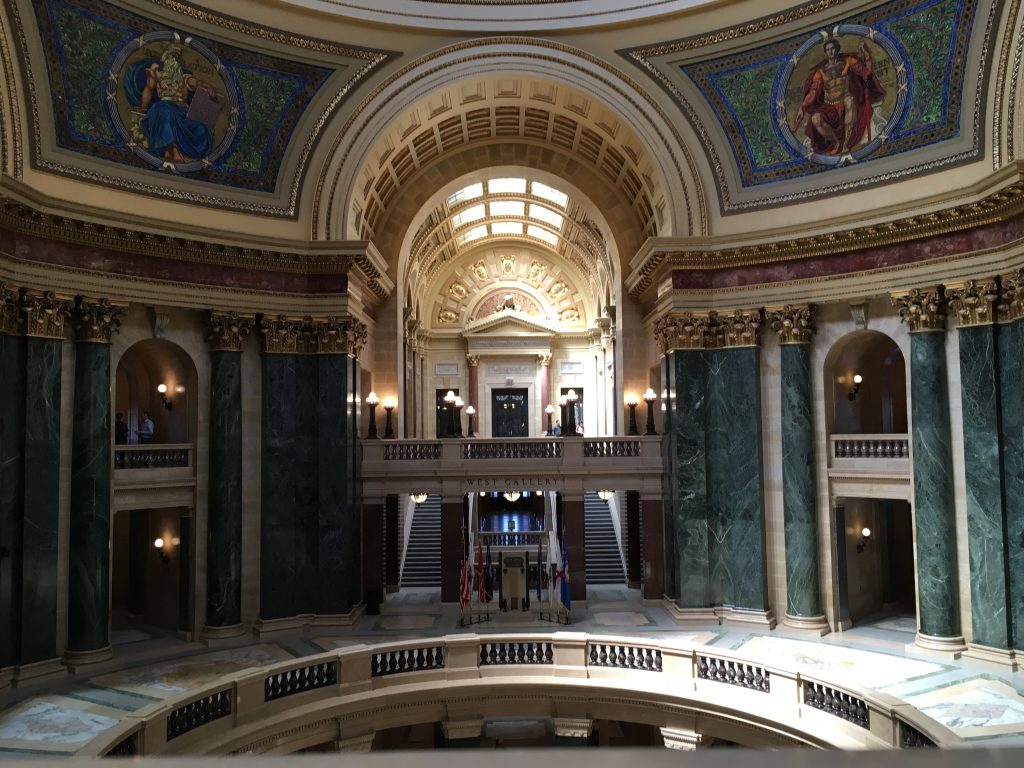GOP Budget Lifts UW Tuition Freeze
Committee votes to end tuition freeze on undergraduate students maintained for 8 years.
Republicans on the Legislature’s budget committee have voted to lift a tuition freeze on undergraduate students that’s been in place for the past eight years.
Republicans initiated the freeze under former Gov. Scott Walker in 2013 after they scrutinized the University of Wisconsin System over the size of its financial reserves. They continued the freeze for the remainder of Walker’s administration and for the first two years of Gov. Tony Evers‘ administration.
“We can’t have it in perpetuity,” said Sen. Dale Kooyenga, R-Brookfield.
Evers proposed extending the tuition freeze for another two years in his latest budget but called on Republicans to make up for the lost revenue by increasing state funding for the UW by about $50 million.
“The governor’s proposal … continues this popular tuition freeze, but finally funds the freeze,” said Rep. Greta Neubauer, D-Racine.
But GOP lawmakers went their own way Thursday, eliminating the tuition freeze altogether in addition to the governor’s funding.
Kooyenga, who was among the group of GOP lawmakers who first criticized the UW’s reserves eight years ago, said the decision by Republicans to eliminate the freeze reflected a change in approach from the University of Wisconsin System.
“The University of Wisconsin has dramatically increased their transparency,” Kooyenga said.
Kooyenga said there might be a bill introduced in the Legislature to put “guardrails” on any tuition increase, but there were no limits in the higher education budget plan passed by Republicans Thursday.
“But listen carefully, UW,” Kooyenga said. “If UW decides to jack up tuition in a tone-deaf manor, this body will take action.”
It would also require Evers to sign the budget that passes the Legislature, which is not a given after Republicans rejected a wide range of Evers priorities, from K-12 education funding to an expansion of BadgerCare.
GOP lawmakers also dramatically scaled back Evers’ higher education budget, increasing state funding for the University of Wisconsin System by about $8 million instead of the $191 million increase Evers wanted. They also approved about $9 million for the Wisconsin Technical College System and $5 million for a grant program for nursing instructors.
University of Wisconsin System Interim President Tommy Thompson issued a written statement after the vote praising the Legislature’s Joint Finance Committee for its vote.
“The budget committee offers the UW System flexibility to develop talent, generate life-changing research and deliver the education students expect and families deserve,” Thompson said in a written statement.
The budget Republicans passed would not continue the roughly $90 million “lapse,” or temporary cut to the UW System handed down in 2020, although Evers’ budget proposal would have phased it out, too.
Republicans On Budget Committee Eliminate UW Tuition Freeze was originally published by Wisconsin Public Radio.






















There is a group not mentioned in Tommy Thompson’s Statement. Those are the young people, from low-income families, often the “first in their family” to graduate high school. They weren’t mentioned because many of them won’t be going to university because the price is simply far out of reach.
Some 60 years ago, I was one of those kids, first in my low-income immigrant family to graduate high school, bottom of my class, largely clueless, but not eager to follow my dad working on the line at American Motors. Salvation: UWM, which had open admissions, i.e., they accepted morons like me, but most important, tuition of $160/year ($1,400 in today’s dollars). “Working your way through school” meant you could graduate with zero debt. UWM turned out to be a life-changing experience for me, and many like me.
I have no doubt that, if UWM’s tuition had been today’s $10,000, I would have never gone to college, and would have probably been caught in the deindustrialization downdraft that stunted the lives of lots of many childhood friends of my generation.
The public university should be a vehicle for opportunity, not an institution that is out of reach for many, that reinforces inequality, or leaves so many in long-term debt.